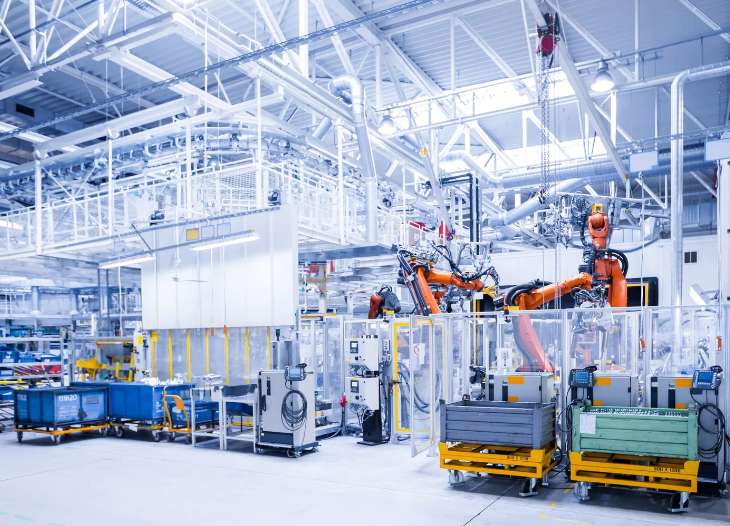New Delhi, 03/01/2025: India’s manufacturing sector, which has been a key driver of the economy in 2024, saw growth ease to its lowest level in a year in December. According to the monthly HSBC India Manufacturing Purchasing Managers’ Index (PMI), released on Thursday, both new business orders and output expanded at a slower pace, though the sector continues to show resilience and solid momentum heading into 2025.
The seasonally adjusted PMI for December stood at 56.4, compared to 56.5 in November. While this represents a marginal dip and the slowest pace of expansion in 12 months, the reading remains well above the long-term average of 54.1. A PMI above 50 indicates expansion in activity, while below 50 reflects contraction. The data suggests that although the rate of growth has moderated, the overall health of the manufacturing sector remains strong.
Commenting on the findings, Ines Lam, Economist at HSBC, said, “India’s manufacturing activity wrapped up a strong 2024 on a softer note, showing a modest slowdown in the industrial sector. The expansion rate of new orders was the year’s slowest, hinting at a potential slowdown in future production growth.” She added that while domestic demand had cooled somewhat, international markets offered much-needed support.
Indeed, one of the standout features of December was the rebound in exports. New export orders grew at their fastest pace since July, helping many manufacturers offset the moderation in local demand. Firms reported winning business from a wider range of global markets, which bolstered confidence and supported further investment in inputs and staffing.
The survey revealed that manufacturers responded to these improved international orders by raising purchasing levels and increasing their workforce. About 10% of companies reported hiring additional staff in December, while fewer than 2% indicated job cuts. This points to a net gain in employment in the sector, which has been one of the bright spots of India’s broader economy in 2024.
Cost pressures, however, remain a challenge. Container, material, and labor costs have all increased since November, leading to higher input costs for manufacturers. Even so, the rate of input price inflation was described as moderate compared to historical trends, suggesting that businesses are finding ways to manage these expenses without passing the full burden on to consumers.
The HSBC India Manufacturing PMI, compiled by S&P Global, is based on responses to questionnaires from purchasing managers at approximately 400 manufacturers across the country. It is closely watched by policymakers, investors, and businesses for early signals about the health of the industrial sector.
Looking forward to 2025, manufacturers remain optimistic about future output, with many citing planned investments, increased advertising, and expectations of favorable demand conditions. However, concerns around inflation, heightened competition, and global economic uncertainty continue to temper overall sentiment.


